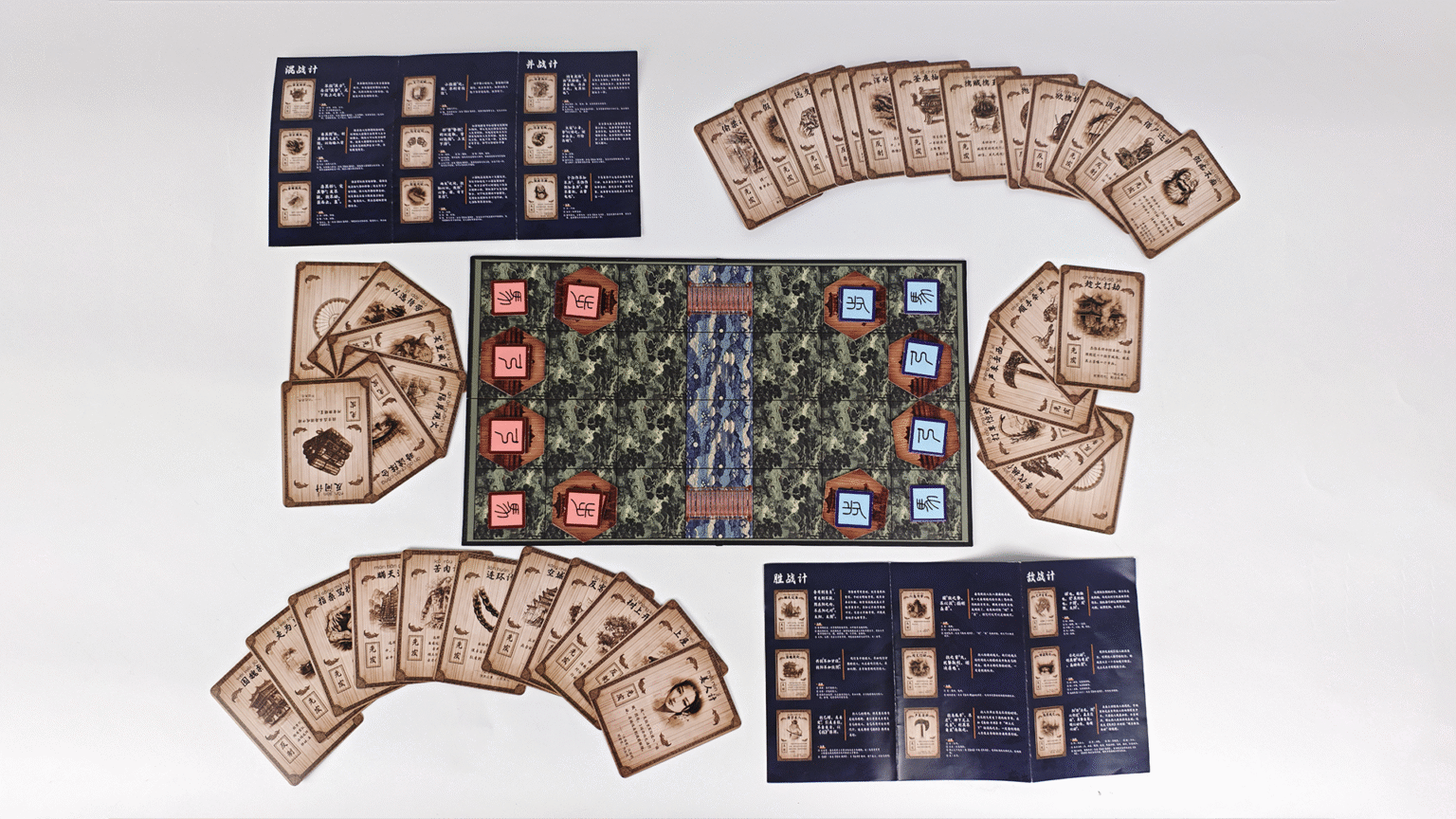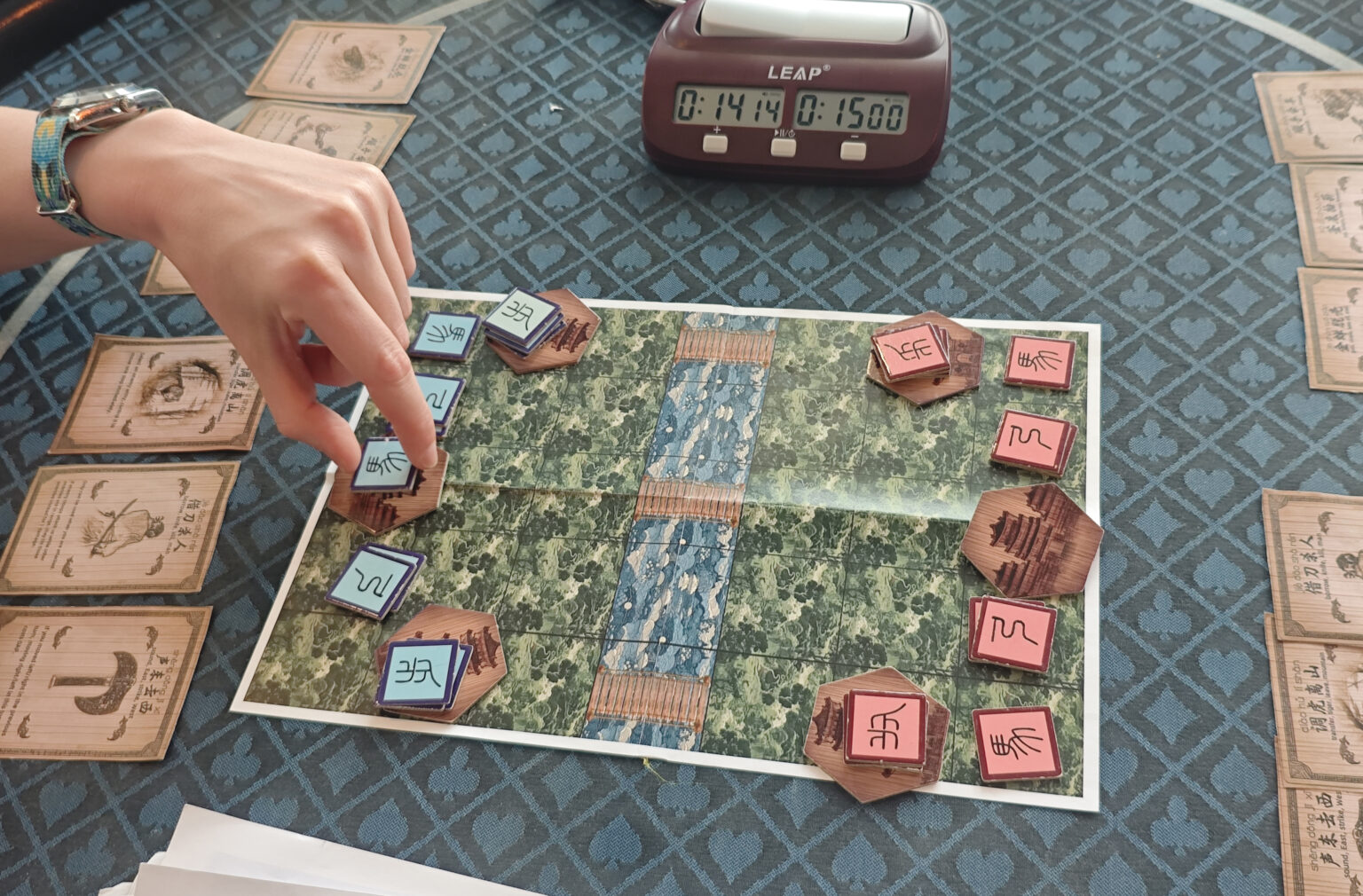36StratagemsEDU——Using Serious table-top game to enhance Chinese Idiom acquisition
This dissertation investigates the potential of a serious tabletop game to enhance the acquisition of Chinese idioms (chengyu) among adult learners of Chinese as a Foreign Language (CFL). Chengyu present particular challenges for L2 learners due to their semantic opacity, irregular syntax, and reliance on cultural allusions. To address this, a serious game was designed by adapting the traditional strategy game The Thirty-Six Stratagems into an educational format, incorporating idiom-based cards and rule modifications grounded in the LM–GM framework. A mixed-methods evaluation was conducted with 14 participants, divided into a flashcard control group and a game-based experimental group. Data collection combined pre-, post-, and delayed-tests of idiom comprehension, Likert-scale surveys based on Keller’s ARCS model, and semi-structured interviews.
Findings suggest that the game significantly improved learners’ comprehension of most idioms, with participants demonstrating stronger retention and deeper engagement compared to pre-test. Participants reported high levels of attention, confidence, and satisfaction, underscoring the motivational advantages of the game-based approach. Although flashcards showed slightly higher immediate test scores, their learning effects decayed more rapidly, whereas gameplay fostered memorable, embodied experiences likely to support long-term retention.
This study highlights the promise of serious games in idiom pedagogy by aligning game mechanics with learning mechanics. It provides both empirical evidence and design recommendations for integrating serious tabletop games into CFL instruction, contributing to the broader field of game-based language learning.


